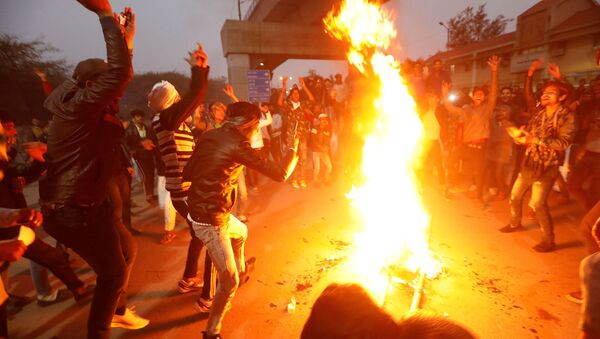After announcing that Kerala would not implement the Citizenship Amendment Act of 2019 (CAA) which had been enacted by the federal government, the state government has challenged the law in the highest court in India.
The state, in its lawsuit filed on Tuesday in the Supreme Court of India, argued that “….there exists a dispute, involving questions of law and fact, between the Plaintiff State of Kerala and the defendant Union of India, regarding the enforcement of legal rights as a State and as well for the enforcement of fundamental, statutory, constitutional and other legal rights of the inhabitants of the State of Kerala” and wanted the CAA to be declared unconstitutional.
Putting forth its arguments against the CAA, the state government said the Act violated Article 14 (right to equality), Article 21 (right to liberty), and Article 25 (right to freedom of conscience and free profession, practice and propagation of religion) of the constitution and goes against the secularist ideals enshrined in the constitution.
Recently, the ruling Left Democratic Front (LDF) government in the state, led by the Communist Party of India (Marxist), had also moved a resolution in its state Legislative Assembly against the controversial law and argued that the provincial assembly has its own privileges and rights that could not be breached.
However, Kerala's Governor (the constitutional head of the state) Arif Mohammad Khan maintained that the resolution, which openly challenges the decision of the federal government, was not legally valid.
While Kerala was the first state to raise it voice against the new citizenship law, it was later joined by other states, Rajasthan, West Bengal, Maharashtra, Madhya Pradesh, and Chhattisgarh, all ruled by non-Bharatiya Janata Party (BJP) governments.
India had enacted the Citizenship Law in early December 2019, which seeks to grant citizenship to persecuted minority Hindus, Sikhs, Christians, Buddhists and Parsis from three neighbouring Islamic countries – Afghanistan, Bangladesh and Pakistan.
The law, however, left out Muslims, which has angered several opposition parties and civil rights activists. Prime Minister Modi, however, asserted on 12 January the “law gives citizenship and does not snatch it from anyone”.
There have been widespread protests against the law across the country, in which 25 people lost their lives in clashes in northern Uttar Pradesh, north-eastern Assam and southern Karnataka state.




